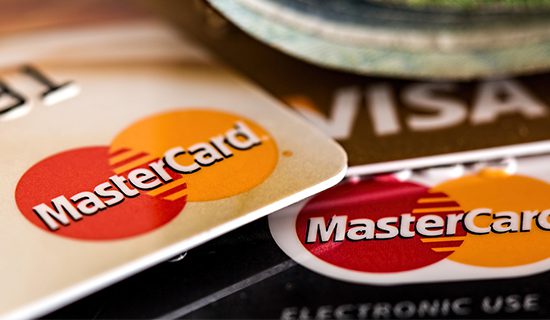Understanding Credit Card Terms May Affect Your App Decision

Credit card companies have ways of making it easy to apply and get credit. Therefore, it is essential to understand common credit terms in order to make a sound decision when applying for a credit card. It is equally important for consumers to have a sensible approach for their card usage in order to properly manage their finances and avoid debt settlement issues. The video Top Ten Tips for the Proper Use of Credit Cards provides great insights and suggestions.
KNOWING WHAT THE TERMS MEAN
Default is when someone is unable to make a payment on a loan or a debt. The payment either consists of the interest on the amount owed, as common with credit cards, and/or a percentage of the amount owed.
Annual Percentage Rate (APR), also known as an Interest Rate, refers to a percentage rate that allows you to use money on a credit card. The rate can either be fixed or variable depending on the card. Fixed-Rate APR is a set rate that cannot change until the time period specified in your credit card agreement is reached. A Variable Rate APR can change typically based on the prime rate or Treasury bill rate. This rate basis information should always be provided in the credit card agreement.
Penalty APR may apply if you are unable to make a minimum payment on your credit card or a payment you make cannot be processed. The Penalty APR is a new, higher, interest rate (APR) which may be put into effect. This rate should be specified in your credit card agreement.
Credit Card Debt is caused when the person using a credit card or multiple credit cards begins to spend more money on the card than they are able to pay.
Credit Score is a numerical point system which is based on information from your credit files. Credit scores are used to determine your risk to lenders, the higher the score the more credit will be available to you. Since a good credit score can fluctuate, it is important to do some research to determine what a good credit score may be at any given time. Many factors affect credit scores, such as the number of credit cards you have, the amount of money spent on credit cards versus the amount of credit available, paying bills on time, etc.
Credit Inquiry is this term used when you apply for a credit card, automotive loan, mortgage or any other credit type. Each credit application shows up on your credit report as an inquiry.
Credit Report is used by lenders to determine whether or not you should receive a loan or credit card. This report includes credit accounts (such as: auto loans, a mortgage, credit cards and bankcards), credit inquiries, public records (including state and county courts) and collection items.
Credit Bureau is the agency that collects information about your credit cards and loans to be used to create a credit report. The information includes collection records, payment history and legal information about consumers and businesses.
Credit Limit is the maximum amount of money that can be spent on a specific credit card.
Cash Advance is using your credit card to get cash. Some credit card companies charge a higher interest rate for cash advances than regular purchases made with a credit card. In any case, the interest rate and any fees will be specified in the credit card agreement.
Balance Transfer is a process where you can move your credit card debt from one card to another. Often times a balance transfer requires a fee; however for new credit cards there is typically an introductory (lower) rate for the balance transfer. However, be aware: when you transfer a balance to a new card and make purchases with that same card, the monthly payments will usually go toward purchases made before the transferred balance. Therefore, the introductory rate may expire before you finish paying off the transferred balance.
Minimum Payment is smallest payment amount you can pay on a credit card or other loan. Typically, a minimum payment is a monthly payment, which includes the interest on the amount owed on the credit card at that particular time as well as a percentage of the balance due.
VIDEOS DESCRIBE/COMPARE CREDIT CARD TYPES
Visit the SettleiTsoft® website to learn about the diversity of credit cards available. From Standard Credit Cards to the various types of Reward Credit Cards, you may be surprised to discover how many kinds there are and the distinct differences between them.
While credit cards can be a great way to build credit, it is important to understand some of the basic terms that financial institutions use and the variety of cards from which you may choose. The more you know, the easier it will be to find the credit card that suits you best.
As you move forward, please remember this information is for educational purposes only. For specific advice, please contact a qualified professional.



 Login
Login






